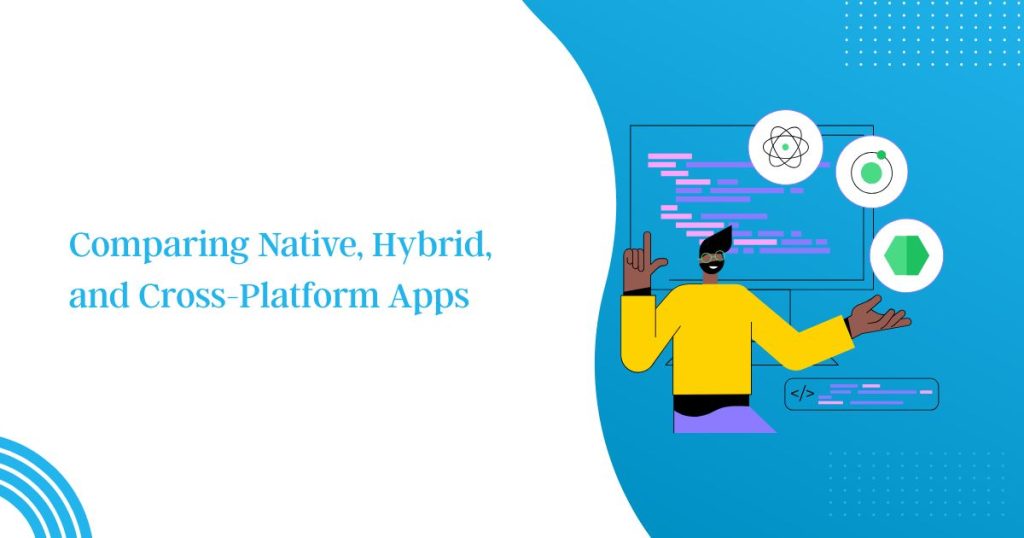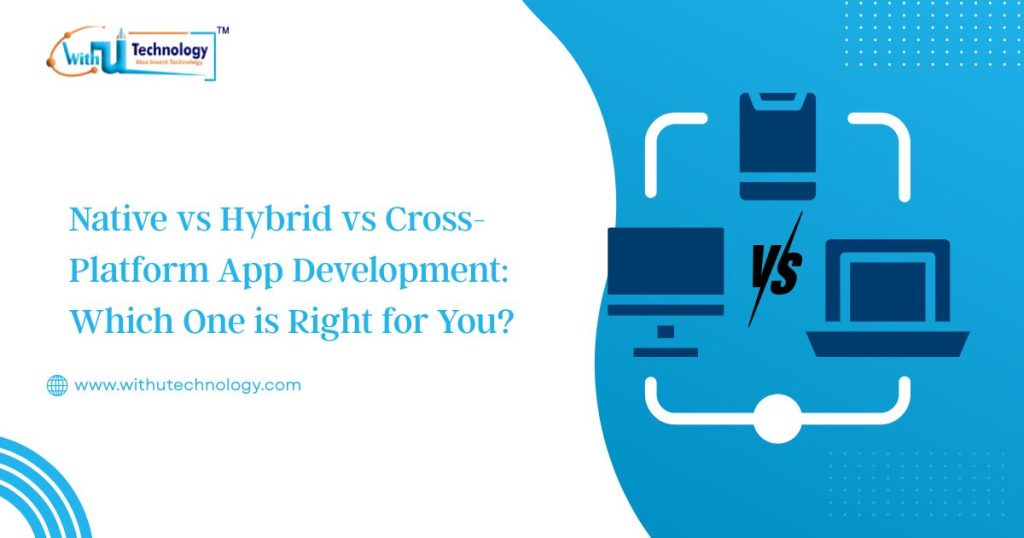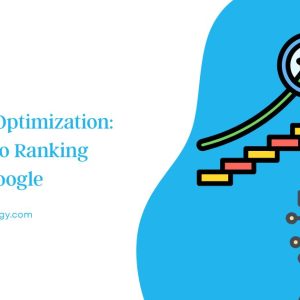Mobile apps have quickly become a powerful way for businesses to engage and reach their audience in today’s fast-paced digital environment. But it can be daunting selecting an approach for app development: there are native, hybrid, and cross-platform options to consider when developing apps – often leaving businesses overwhelmed by this choice. In this article we will review each method’s differences, benefits, disadvantages and use cases so you can make an informed decision.
- Understanding the Basics
- Before diving in to comparisons, let’s first define each form of app development:
- Native App Development – Native apps are built specifically for one platform, like Android or iOS, using programming languages tailored specifically for each of those systems (Kotlin/Java for Android devices and Swift/Objective-C for iOS devices respectively). Once installed directly onto a device they take full advantage of all its features efficiently.
- Hybrid App Development – Hybrid apps are web apps that have been packaged within a native container to run across multiple platforms simultaneously, such as Ionic, Cordova or Flutter. Hybrid apps use one codebase for both iOS and Android.
- Cross-Platform App Development – Cross-platform apps can be created using frameworks like React Native or Xamarin, providing superior performance over hybrid apps while sharing codebase across platforms.
Comparing Native, Hybrid, and Cross-Platform Apps

1. Performance
- Native Apps: Native apps offer superior performance since they’re tailored specifically to a platform. They boast fast and responsive user experiences with seamless animations and transitions for an optimal experience.
- Hybrid Apps: Performance may be slower compared to native apps due to their use of web views for rendering content, particularly complex animations or heavy data processing tasks which could cause delays.
- Cross-Platform Apps: Cross-platform apps offer near native performance across devices and operating systems, using modern frameworks like React Native or Flutter that ensure effective utilization of device resources while keeping responsiveness at a maximum.
2. Development Time
- Native Apps: Constructing separate apps for Android and iOS is more time and cost intensive, as multiple codebases must be maintained and managed separately.
- Hybrid Apps: Development is typically faster, as a single codebase serves all platforms; however, additional tweaks may be needed for certain platforms to resolve specific issues.
- Cross-Platform Apps: Development time can be drastically cut due to shared code across platforms; only minor adjustments will need to be made for features specific to one platform.
3. User Experience (UX)
- Native Apps: Native apps offer the ideal user experience, adhering to platform-specific UX guidelines for optimal navigation, intuitive controls and high responsiveness. Users enjoy seamless navigation and responsive controls that facilitate an exceptional experience.
- Hybrid Apps: Users may experience poor user experiences due to their dependence on web technologies; apps may not feel “native” across devices.
- Cross-Platform Apps: While modern frameworks provide near native user experiences, complex animations or device-specific features may require further native modification to achieve optimal functionality.
4. Maintenance and Updates
- Native Apps: Maintaining two separate codebases can be time-consuming and costly, as any update or bug fix must be implemented individually on both platforms.
- Hybrid Apps: Upkeep is simplified as there’s only one codebase; updates happen faster and at reduced costs.
- Cross-Platform Apps: Their maintenance is simpler than native apps since much of their code can be shared across platforms; however, occasional platform-specific optimization may still be required.
5. Cost
- Native App Development: Native app development typically incurs greater expense due to separate development teams and longer development cycles.
- Hybrid Apps: They tend to be more cost-effective as their single codebase reduces both development and maintenance expenses.
- Cross-Platform Apps: Provide an effective cost solution — less costly than native but superior in performance and user experience when compared with hybrid apps.
When to Choose Each Approach
Native App Development
- Native apps are ideal for businesses that require high performance and complex animations.
- Need deep integration of device hardware (cameras, GPS units and sensors)
- Prioritize an excellent user experience (UX) and platform-specific features
- Initialize on one platform first
Hybrid App Development
- Hybrid apps are ideal for businesses who require rapid deployment across multiple platforms.
- Operating within a limited budget.
- Do not require advanced device features
- Are You OK With Deliberately Lower Performance for Faster Delivery?
Cross-Platform App Development
- Cross-platform apps are ideal for businesses that wish to efficiently target both Android and iOS platforms simultaneously.
- Want near-native performance without incurring the high costs associated with separate native apps?
- Plan regular updates and aim for easier maintenance.
- Require an equilibrium between speed, cost and user experience
Why Choosing the Right Development Approach Matters

Selecting the wrong development approach could cost your business both time and money. Opting for hybrid apps for performance-intensive apps may annoy users and result in negative reviews, while developing native apps for simple MVPs could increase development costs substantially.
Partnering with an Android app development or web development firm in Jaipur can help you evaluate the requirements for your project and select an optimal solution. At WITH U Technology, our professional development team offers guidance from technology selection to design of user experience (UI/UX design) and post launch maintenance ensuring your app achieves your business goals.
The Future of App Development
With ever-evolving technologies, the lines between native, hybrid, and cross-platform apps are blurring. Tools such as Flutter allow developers to craft native-like apps while using a single codebase; similarly React Native offers businesses more ways to achieve performance and flexibility – giving them more choices to strike a balance between cost, speed and performance.
Investment in the appropriate app development approach today can give your business an advantage tomorrow. No matter if it’s a startup, small business, or enterprise; understanding each method’s differences and benefits will enable you to make an informed decision about which is right for your needs.
Conclusion
Selecting between native, hybrid and cross-platform app development depends on your business needs, budget, timeline and long-term goals. Native apps provide superior performance and user experience but come at an increased cost.
Hybrid apps can be quickly developed within an affordable budget but may compromise on performance.
Cross-platform applications offer a midway point, providing near native performance at reduced development time.
Collaborating with an experienced Android and web development company in Jaipur such as WITH U Technology is the best way to ensure your app aligns perfectly with your business strategy and meets user engagement and satisfaction goals. They specialize in building apps that not only look fantastic but perform seamlessly for maximum user engagement and satisfaction.
Take Action Now! Don’t allow poor development decisions to stall the growth of your app’s success. Get in touch with experts and start creating an app that delivers real business benefits for you.







